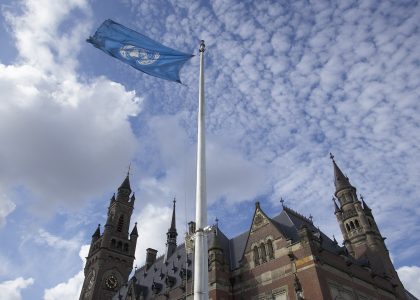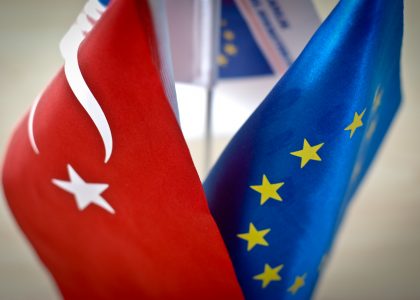Lee Jarvis explores the outlawing of enemies of the state in fiction and political debate.
The final scene of Friedrich von Schiller’s play Wilhelm Tell confronts its readers with the contrasting fortunes of two men who have recently killed. On the one hand we have Tell, newly returned from shooting his tormentor Hermann Gessler with the crossbow that had earlier taken an apple from his son Walter’s head at eighty paces. Arriving back home to his wife and children, Tell encounters Duke Johann of Swabia seeking refuge in his house while disguised as a monk, and fresh from the killing of his own uncle – the emperor.
Johann, realising in whose company he has found himself, attempts to draw a parallel between the two men’s actions. Tell, for his part, vehemently rejects this equivalence, and differentiates his own effort to protect his wife and children from the vengeful Gessler, on the one hand. With, on the other, Johann’s decision to kill which had been motivated by the wealth he believed wrongly denied him by his uncle. Yet it is not our story’s protagonist alone who seems to make such a distinction. While Tell is hailed by joyous compatriots for his role in returning freedom to the peoples of Switzerland, Johann has effectively been cast out as an enemy of the state by the Queen, who goes further still and demands the population’s help in finding the emperor’s killer. As Tell puts it to Johann in words translated by William F. Mainland in the 1972 University of Chicago Press version of the play:
You know you are declared without the law,
To foes permitted and to friends denied?
This act of outlawing enemies such as a Johann has a long history going back far beyond the two hundred years since publication of Schiller’s play. In the contemporary period it is most familiar to us in the act of proscription: the power by which particular, named, terrorist organisations are declared illegal within the state and – as with Johann – effectively banished. Under the UK’s Terrorism Act 2000, proscription makes it a criminal offence to belong to, or invite support for, the banned organization. The power also triggers a range of further offences including arranging meetings in support of such a group, or wearing clothing related to it. As of August 2014, there were 60 international terrorist organisations proscribed in the UK, as well as 14 relating to Northern Ireland under earlier legislation.
The climax of Wilhelm Tell is instructive in this context for reminding us that the judgements we make around political violence rely upon more than the violence itself. The distinction between terrorist, murderer and assassin – for instance – is not (or not only or necessarily) a behavioural one reducible to the physical action that has taken place. Such distinctions, typically, also involve evaluations about the intention, motive, threat, and actor behind specific acts of force. In the United Kingdom – at least in relation to the power of proscription – such evaluations are made by Parliament which is called upon by the Home Secretary whenever she seeks to add new organisations to the list of banned groups. In my recent research with Tim Legrand of Australian National University, we have been exploring the language employed in these debates in an attempt to answer such questions as:
- How is the power of proscription discussed by Parliamentarians?
- How is the identity of terrorist groups (the ‘other’) and the United Kingdom (‘self’) portrayed?
- What consequences – political, social, strategic and ethical – are attached to proscription by advocates and critics of these powers?
Some of the findings from this research will soon be published in a forthcoming article in Review of International Studies titled ‘Legislating for Otherness: Proscription Powers and Parliamentary Discourse’. The argument in that article is that debates around proscription – and indeed the power of proscription itself – do not reflect, but are actually constitutive of, the difference between a liberal, democratic, tolerant British self and a host of illiberal and violent terrorist others. Moreover, this distinction is one that is recognized and maintained, we suggest, by proponents and critics of the proscription alike.
Our argument in this research project, ultimately, is that we might take discourse on, and the exercise of, this power more seriously than has often been the case by scholars of counter-terrorism. This is, not least, because proscription is indeed ‘a tough power’ as the then Minister for Policing, Security and Community Safety Hazel Blears put it in a 2005 debate; one with considerable significance for individuals, communities and the experience of citizenship more widely. Proscription matters precisely because it draws a stark dividing line between ‘us’ and ‘them’; denying those designated thus the sanctuary of the state. Or, to return to the above lines of our ‘hero’, Wilhelm Tell, but this time translated in John Prudhoe’s 1973 Manchester University Press edition (and still in iambic pentameter):
You know you’ve been proscribed? Forbidden friends,
Delivered to your enemies?
Dr. Lee Jarvis is a Senior Lecturer in International Security and a member of the Critical Global Politics research group at the University of East Anglia. He has published widely on the politics of terrorism and security, with recent books including: Counter-Radicalisation: Critical Perspectives (Routledge, 2015); Security: A Critical Introduction (Palgrave, 2015); Anti-Terrorism, Citizenship and Security (Manchester University Press, 2015); and Terrorism Online: Politics, Law and Technology (Routledge, 2015).





